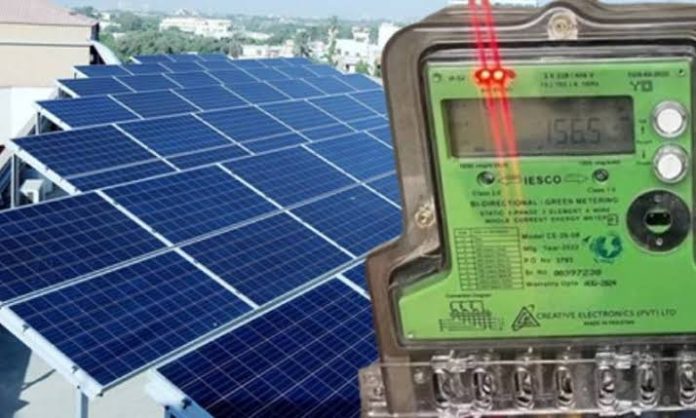In a move aimed at addressing the growing reliance on solar energy and its impact on the national grid, the government is considering a significant reduction in the tariff for electricity generated through roof-mounted solar panels. Currently, solar-generated electricity is sold to the national grid under the net metering system at a rate of over Rs 21 per unit. However, due to a massive decline in solar panel prices, the government is looking to lower this rate to between Rs 7.5 and Rs 11 per unit.
Under the existing system, two units of electricity produced by roof solar panels are equivalent to one unit of grid electricity. The proposed reduction in the buyback tariff would reflect the decreased costs of solar panel installation, making solar energy more affordable for consumers while still ensuring that the national grid does not suffer from increased capacity payments due to the widespread adoption of solar energy.
According to senior officials in the Energy Ministry, the move is being considered in response to concerns about the growing trend of solar panel installations on rooftops, which, while environmentally beneficial, have contributed to the growing problem of capacity payments for the national grid. The International Monetary Fund (IMF) recently raised concerns over the increasing use of solar energy, highlighting the need to boost grid electricity consumption and avoid over-reliance on solar power.
The reduction in the solar tariff is expected to encourage more consumers to adopt solar energy systems. However, it may also reduce the incentives for consumers to install solar panels on their rooftops, as they would be compensated less for the energy they contribute to the grid. In return, consumers who generate electricity through solar panels would be able to draw power from the national grid during night-time or peak hours at a rate of Rs 60 per unit.
In the new framework, the government aims to balance the production of solar energy and grid electricity. The proposed change suggests that six units generated by roof solar panels would be equal to just one unit of grid electricity, addressing concerns that the excessive production of solar energy is exacerbating the national grid’s challenges. This shift is also in line with the IMF’s suggestions to increase grid electricity usage, which has been on the decline due to the increased adoption of solar solutions across the country.
The growing popularity of solar energy in Pakistan is partly driven by sharp increases in electricity tariffs. Over the past three years, electricity prices have surged by 155 percent, prompting households and industries to explore alternative energy sources. Solar power, particularly through rooftop installations, has become a preferred option for those looking to reduce their electricity bills, contributing to the country’s increasing imports of solar panels. In the last fiscal year alone, Pakistan imported approximately 15GW of solar panels worth $2.1 billion from China.
The reduction in solar tariffs is expected to further support the transition towards renewable energy, particularly as solar panel costs continue to drop. However, it will also raise questions about the sustainability of solar power for consumers who rely on it to reduce their dependence on grid electricity.
The government’s strategy aligns with a proposal from K Electric, which recently secured a bid of 3.1 cents per unit for its solar plant. The government is considering bringing down the solar panel tariff to this bid amount, which would bring it closer to the price at which the government plans to procure solar energy in the future. The government also intends to seek approval from the National Electric Power Regulatory Authority (NEPRA) for this change.
Despite the growing adoption of solar panels, some consumers have raised concerns regarding the difficulties of installing net metering systems, with several complaints directed at Distribution Companies (DISCOs) and K Electric. In response, NEPRA issued a show-cause notice to K Electric for failing to process net metering applications as required.
Currently, under the net metering system, consumers can export the excess energy generated from their rooftop solar systems to the national grid in exchange for compensation. However, the system has faced delays and issues, leading some experts to call for a shift to a gross metering system. Gross metering would compensate consumers at a fixed feed-in tariff for all the energy they generate and send to the grid, regardless of whether they use it themselves.
With the national grid under pressure due to the increasing demand for electricity, the government’s proposed changes aim to strike a balance between incentivizing solar power adoption and ensuring the continued stability of the national grid. While the tariff reduction may discourage some from installing rooftop solar panels, it is expected to curb the growing issue of capacity payments and reduce the strain on the grid, thus helping to maintain a stable energy supply for Pakistan’s future needs.


